THE ACCOUNTANT
SCAN CODE FOR DIGITAL MAGAZINE


SCAN CODE FOR DIGITAL MAGAZINE

THE ACCOUNTANT magazine is issued quarterly.
Published by EDITOR
Maria Cauchi Delia DESIGNER
Daniela Cutajar
ADVERTISING INQUIRIES
theaccountant@miamalta.org
All correspondence, articles for publication and enquiries are to be addressed to:
The Editor MIA Professional Limited Level 1, Tower Business Centre Tower Street, Swatar BKR 4013, Malta.
The Institute does not necessarily concur with the views expressed by the authors in the articles published in this journal. The publishers and authors do not assume any responsibility for loss or damages incurred by any person acting or refraining from action as a result of any view expressed in this journal.
If you would like to be featured in this publication, please visit www.bit.ly/GetRecognised for more information. The
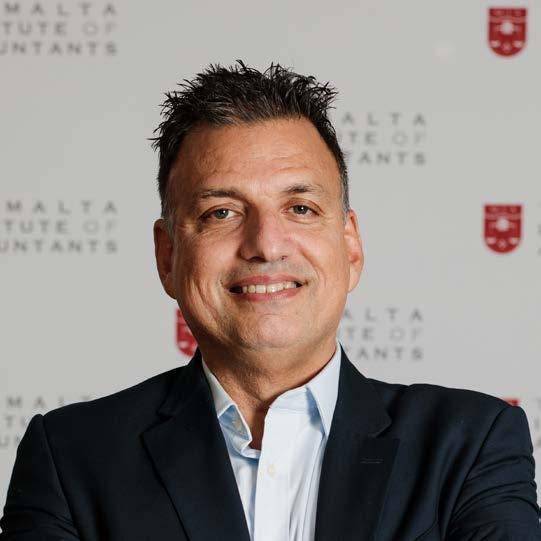
It is my pleasure to welcome you to our publication for the last time as my two-year Presidency comes to its end.
Preparing these few words to you I inevitably went on a quick trip down memory lane. While two years might seem a short period of time in the wider history of any organisation, so much has indeed happened, with reality as we know it evolving constantly under pressure from various directions.
Over this period, the Institute has continued to build on the successes and achievements of previous presidencies, ensuring consistency in our mission and strategic objectives. This steady course of action, even as a new president takes the reins every two years, ensures uninterrupted progress towards our goals as we seek to be there in meeting the aspirations of our members and our profession.
Looking back not just over the last two years, but at nearly a decade of my involvement with the Council, it is with pride to reflect on how the Institute has evolved into a respected institution on a national level. With a professional structure in place, a growing membership base, and a strong voice in national discussions, the Malta Institute of Accountants has achieved remarkable growth and influence over the years. With such a backdrop, it is of no surprise that membership numbers have rapidly increased, and I do hope that the Institute eventually takes on board proposals for corporate members allowing firms to join us and strengthen their voice.
Throughout the past years, the MIA has showcased its unwavering strength, flexibility and dedication to excellence in the midst of unparalleled obstacles. As the global landscape, including the Maltese economy, tackled uncertainty head-on, our profession embraced its pivotal responsibility as custodians of financial integrity, ethics and as strategic consultants for businesses, governments and individuals. Each achievement reinforces our resolute pledge to provide value, uphold
ethical benchmarks and propel the profession forward to confront the forthcoming challenges. Yet, we cannot rest on our laurels. Truth is that that the challenges ahead are far from resolved. The global macroeconomic landscape is characterised by uncertainty, inevitably leading to repercussions for the Maltese economy. The ongoing conflict in Ukraine and the escalating geo-political tensions between Western nations and China are factors that contribute to this unease. The strain of the cost-ofliving crisis is endangering economies, compounded by elevated interest rates, prompting businesses to scale back investments. Larger European economies are coming to a halt.
As an open economy, it is inevitable that we will feel the pinch and thus, I find the recent decision by the Central Bank of Malta to revise downwards its economic growth forecast for this year unsurprising. Thankfully, this revised outlook still predicts growth in Malta for the forthcoming years, albeit at a more restrained pace.
In addition to these external challenges, our nation needs to ask a number of questions to itself and address issues that threaten our path to prosperity and a healthy quality of life. From the challenges posed by population growth to concerns about air quality, environmental sustainability, and effective governance, enhancing our common future requires decisive action.
This wider context puts a bigger onus on an Institute such as ours to push forward ideas that can be conducive to growth, and this is what we have been seeking to achieve through our role on the working groups set up by the Malta Financial Services Advisory Council (MFSAC). As an Institute we believe that the wider financial services industry can bring to Malta additional, high-quality sustainable growth, and we say so not because it provides the bread and butter for most of our members but because this industry has in recent years truly contributed in no small way to the country’s success.
Moreover, a recent study supported by the Institute confirmed that the operations of businesses within the
services sector align seamlessly with Malta’s pursuit of sustainable and circular growth. Notably, an evaluation of the environmental consequences stemming from the activities within the wider financial sector, gauged by carbon emissions produced and utilisation of office space, reveals that among the major industries operating on our shores, financial services carry a minimal environmental footprint.

As an Institute, we are using the experience gained over the past years to act as enablers at MFSAC level and drive the change that is necessary to see growth in this sector. Clearly, addressing human resource issues remains one of the biggest challenges. Although we acknowledge the necessity for discussions surrounding the sustainability of population growth, we also recognise that the expansion of our industry cannot solely rely on local resources. While we are actively engaged in efforts to attract more students to pursue careers in accountancy, the constraints posed by population limitations persist. Foreign labour will remain indispensable for the foreseeable future. Nevertheless, as an Institute, we uphold the view that our industry should prioritise attracting resources that enhance our economy’s value-added proposition, aligning with the country’s genuine requirements.

In wrapping up, I wish to express my sincere appreciation to all our members. Your unwavering expertise, commitment, and enthusiasm form the bedrock of our accomplishments. Our dynamic network of professionals serves as the driving catalyst behind the transformative impact we seek to bring about. I would also like to thank Council, our executive team at the Institute and all the committees’ and working groups’ members that give up so much of their time voluntarily. At this juncture, as their term also comes to an end by year’s end, I wholeheartedly encourage new members who would like to contribute to these committees to come forward and express their interest in doing so. I genuinely believe that besides contributing to the Institute and wider society in general, committee members do get back a lot, both in terms of an enriching professional experience and also in terms of networking and opening up of new opportunities.
Before closing off, I would like to salute the memory of Joe N Tabone, a two-time President of the Institute , who passed away earlier this Summer. On behalf the Institute, I would like to extend my sincere condolences to his family.
Moving forward, I hold a strong belief that, collectively, we will seize growth opportunities and guide our profession further ahead. I thank you for being part of this success.
 Maria Cauchi Delia
Maria Cauchi Delia
Welcome
As the long, sun-lit days come to an end, I express my hope that you all had the opportunity to enjoy valuable moments of rest with your dear ones. As the season shifts, we continue focusing on our strategic objectives and are thrilled to present another edition of our journal filled with insightful articles, news updates and engaging interviews with key stakeholders within the industry.
This issue has a special focus on Professional Accountants in Business (PAIBs). We delve into how PAIBs can add value to business as well as the importance of embracing artificial intelligence (AI) and technology. Our publication seeks to address the latest trends, innovations and challenges shaping the world of accounting. From expert analyses to thought-provoking features, our goal is to provide you with valuable insights that inform and inspire your professional journey.
So much has happened over the past few months since our last publication. There has been no respite in activity for the Institute and our hard-working team.
I was particularly thrilled to meet so many of you at the MIA’s Annual Networking Event, held on 22nd June 2023. With over 800 people attending, it was truly a memorable event. On this occasion, we also continued extending our support for Save and Support Trust and Beating Hearts Malta, through fundraising and selling of paintings. A total amount of Euro 5,000 will be presented shortly by the Institute to the two institutions.
In June, together with the Association of Chartered Certified Accountants (ACCA), we also organised the MIA-ACCA Joint Examination Scheme (JES) Tutors Development Day and Students MeetUp. During this event we provided ACCA Approved Learning
Providers’ (ALPs) tutors and current and potential MIA-ACCA JES students with invaluable insights on the ACCA qualification and the profession as well as an opportunity to network.
During the summer, we also continued working on our #AccountsForYou awareness campaign, through the production of targeted videos launched in collaboration with 89.7 Bay. This campaign was made possible with the joint efforts of representatives from the MIA’s Young Members, PAIB and Small and Medium Practices (SMP) Focus Groups, staff members, as well as with the support of the campaign’s sponsors. As part of our education campaign, in July the Institute also participated in the IChoose Fair.
Concurrently, our technical team, together with our Committees’ and Working Groups’ representatives, has continued to work on various projects. We are addressing various areas of relevant legislation impacting the profession in the months ahead.
One of our top priorities is the transposition of the Corporate Sustainability Reporting Directive (CSRD), and our objective is to ensure that, through meetings with stakeholders and government entities, it is transposed in the best interests of the country and the profession. In fact, during the summer months, the Strategy working group within the Sustainable Finance Committee met regularly to discuss the CSRD and its transposition.
It is imperative that accountancy professionals are well-versed in the requirements that CSRD brings about, given that several entities will be impacted already as from next year, while others will be expected to follow suit in the years ahead.
The Sustainability Reporting working group also provided feedback on two separate consultations, these being the European Commission’s Consultation on the Draft Delegated Act on the First Set of European
Sustainability Reporting Standards (ESRS), and the European Supervisory Authorities’ Consultation on the Sustainable Finance Disclosures Regulation (SFDR). Currently, the Sustainability Assurance Working Group is working on drafting feedback to be provided to the International Auditing and Assurance Standards Board (IAASB) on the Exposure Draft of the International Standard on Sustainability Assurance (ISSA) 5000. In parallel, the Institute is also ensuring that its members have access to the necessary training in the area of sustainability.
Through our Audit and Assurance Committee, we provided feedback to the IAASB on the Exposure Draft of the revised International Standard on Auditing (ISA) 570 - Going Concern and Proposed Conforming and Consequential Amendments to Other ISAs.
The Institute was also involved in discussions with the Merchant Shipping Directorate within Transport Malta, the Malta Tax and Customs Administration (MTCA) and the Malta Maritime Law Association in relation to the annual return of shipping organisations benefitting from the Tonnage Tax Regime.
The MIA also submitted feedback to the Malta Digital Innovation Authority (MDIA) on its proposed Technology Assurance Assessment Framework (TAAF).
We had meetings with representatives from the Building and Construction Authority in relation to its request for an auditor’s statement declaring that an individual or company is not bankrupt, as part of its requirements to issue a contractor’s licence. The MIA explained to the Authority that auditors are not in a position to provide such statements, following which this requirement was removed.
We also continued our discussions with Business First on the launch of the Business Portal.
Our contribution in the implementation of the Malta Financial Services Advisory Council (MFSAC) strategy is ongoing. We worked on plans and budgets for government’s consideration in the area of Education and Resources and Sustainability. We also form part of a group led by the Malta Business Registry (MBR) handling the reform of the Companies Act.
We continued working closely with the Accountancy Board and the Malta Financial Services Authority (MFSA) on several initiatives, with special focus being the drafting of an alternative framework to the International Financial Reporting Standard (IFRS) 17,
to be adopted by certain eligible entities. For this project, discussions were also held with industry representatives.
The Institute, together with its various committees put together its proposals for Budget 2024 and will be presenting these proposals to the Minister for Finance and Employment as well as the Shadow Minister for Finance.
On a different note, we are also enhancing our relationships with other professional organisations. While these may operate in completely diverse fields than ours, the commonalities in terms of our respective challenges and opportunities often converge. We are therefore committed to investing further energy in this relationship building in our efforts to seek common ground towards Malta’s future prosperity.
At an international level, we participated in the International Federation of Accountants’ (IFAC) PAIB Advisory Group meeting held in Paris, during which sustainability, digitalisation, corporate governance and the attractiveness of the accountancy profession were amongst the topics discussed.
The Institute also attended for the IFRS Foundation’s World Standard-setters Conference in London, an annual conference which provides representatives from around the globe with the latest updates and developments in the standard-setting world, both from the International Accounting Standards Board (IASB) as well as the International Sustainability Standards Board (ISSB).
Looking forward, although there are just a few months left till the end of the year, we are truly excited to bring to you four high-level events, the Digital, the SMP, the PAIB, and the Tax Conferences, as well as a variety of CPE sessions. During these events, we will be hosting distinguished experts from within our industry, as well as stakeholders with significant connections to our field. Our aim is to provide you with a comprehensive overview of the current landscape, ensuring you are well-informed about the latest developments that impact our profession.
I encourage you to check out what is on offer and find the event which best suits your interests and needs!
I invite you to enjoy this edition of The Accountant and look forward to meeting up with you in some of the events we are planning for the weeks ahead.
Malta’s revised Recovery and Resilience Plan has been approved by the European Commission (EC). This places a stronger focus on green transition, allocating 68.8% of available funds to support climate objectives. Additionally, 26.2% of the total allocation is dedicated to supporting the digital transition, investing in digitalising public administration, strengthening government IT systems, and enhancing digital public services. The plan also includes provisions for digitalising at least 360 companies, particularly SMEs. Further information is available here Information on funding opportunities may also be found here
On 25 July 2023, the Financial Intelligence Analysis Unit (FIAU) published an overview of the supervisory work that it plans to carry out during this supervisory cycle.
More information may be accessed here
The FIAU published a number of updates on 3 August 2023, in relation to publications issued by the Committee of Experts on the Evaluation of Anti-Money Laundering Measures and the Financing of Terrorism (MONEYVAL), European Union Agency for Law Enforcement Cooperation (EUROPOL) and the European Banking Authority (EBA).
These updates may be accessed here.
On 5 July 2023, the FIAU published three updates from the Financial Action Task Force (FATF) and European Union (EU). These updates were in relation to the FATF’s implementation of their standards on virtual assets and virtual asset service providers (VAs and VASPs) and the Revision of Recommendation 8 and its Interpretive Note, and the EU Commission’s Delegated Act on High Risk Third Countries respectively.
More information is available here
On 18 July 2023, the Commissioner for Revenue Act, Cap. 517 of the Laws of Malta (“the Principal Act”) was amended through Act No. XXVII of 2023. Through these amendments, the short title of the Principal Act was changed to the Commissioner for Tax and Customs Act, and all references to the Commissioner of Inland Revenue, the Commissioner of Value Added Tax, the Comptroller of Customs and the Commissioner for Revenue in any law, statutory form and judicial act, shall be read and construed as references to the Commissioner for Tax and Customs. In addition, all references to the Office of the Commissioner for Revenue shall be read and construed as references to the Malta Tax and Customs Administration.
Throughout 2017 to 2022, the employment rate for the age group 15-64 witnessed a significant rise, from 72.2% in 2017 to 80.0% in 2022. An NSO study has shown that the labour market growth was notably influenced by the increased participation of women, as indicated by a remarkable 12.7% increase in the female activity rate. On the other hand, males contributed with a 2.8% increase to the overall rise in activity rate during the same period. The key indicators of the Labour Market for 2017-2022 can be accessed here.
Balance meets excellence


Do you share our passion for excellence? Join us for a fulfilling journey where you can thrive professionally and personally. Experience the Baker Tilly life and discover the perfect balance to drive your success and the success of our clients.
Now, for tomorrow.

The Central Bank of Malta’s most recent forecasts indicate that Malta’s gross domestic product (GDP) growth is expected to decrease from approximately 7.0% in 2022 to 4.0% in 2023. This slowdown is projected to continue with a slight easing to 3.8% and 3.7% in 2024 and 2025 respectively. However, when compared to the previous projections, the Bank’s latest forecast for headline GDP has been revised upwards across the entire projection period. Further details are available here
The International Accounting Standards Board (IASB) issued amendments to IAS 21 The Effects of Changes in Foreign Exchange Rates, requiring companies to provide more useful information in their financial statements in instances when a currency cannot be exchanged into another currency.
Such amendments will become effective for annual reporting periods beginning on or after 1 January 2025. Read more here
IASB concluded its decision-making on two new IFRS Accounting Standards, marking the final step before the drafting and balloting process begins. These two new standards are the result of the Primary Financial Statements project and the Subsidiaries without Public Accountability: Disclosures project respectively.
IASB expects to issue these two new Accounting Standards in the first half of 2024, with the effective date for both of them being annual reporting periods beginning on or after 1 January 2027. More information is available here.
The International Federation of Accountants (IFAC) released the second of a three-publication series to help small and medium sized practices implement the International Auditing and Assurance Standards Board’s (IAASB) quality management standards. Titled Developing a Detailed Implementation Plan, this is designed to provide tips and guidance for a practical implementation and addresses different steps throughout the process.
More information on the second instalment, together with the document itself as well as the previously published first instalment, is available here
IFAC published an article exploring five opportunities for professional accountants to shape their career in the most effective and meaningful way, as identified by its Professional Accountants in Business (PAIB) Advisory Group.
More information, including the published article, is available here.
Payroll is more than just issuing paychecks. It’s about ensuring that your employees, the backbone of your organization, are compensated accurately and on time. However, payroll is not without its challenges. A staggering 80% of payroll errors are discovered by employees themselves. This affects their trust in the organization and their overall job satisfaction. In fact, 44% of employees who are paid incorrectly consider leaving their jobs.
In the ever-evolving business landscape, 32% of organizations have identified their primary payroll challenge as data collection. This means that any payroll errors do not squarely fall upon whoever is responsible for payroll. The old adage “garbage in, garbage out” applies. Payroll is not just about pressing a button but a process that starts from the moment you engage an employee.
The sensitivity of payroll makes it crucial for organizations to invest in the people handling it. This investment should be two-fold: self-development and technology. You can significantly reduce errors, improve efficiency, and increase employee satisfaction by providing your payroll team with the necessary training and tools.
In partnership with the Malta Institute of Accountants (MIA), we are offering a comprehensive payroll masterclass designed to enhance the skills and knowledge of your payroll team.
One of our clients had a process largely dependent on a single person in charge of payroll. From counting working hours, inputting overtime and adjustments into payroll and validating the payroll run. The process was not only time-consuming but also demotivating. Through the introduction of technology and involvement in team members, they were not only able to save hundreds of labour hours on payroll and vacation management. Leveraging the new training on their first automated payroll, they saved well over €10,000 in overpayments that previously could not be identified.
Investing in your payroll team and technology is about more than just reducing errors. It’s about showing your employees you value their work and contribution to the organization. It’s about building a culture of trust and transparency. And most importantly, it’s about ensuring the success and sustainability of your business.
Are you ready to take your payroll to the next level? Invest in your payroll team and technology today. Your employees, and your bottom line, will thank you.
Learn more about Buddy. The only Cloud Payroll and HR Solution where FSS submissions are a click away. www.buddy.hr

Note: In line with the Corporate Sustainability Reporting Directive (CSRD), the first companies who shall be reporting on their sustainability information are large undertakings which are public interest entities (PIEs) and PIEs which are parent undertakings of a large group. This will be extended further to other undertakings for financial reporting periods beginning 1 January 2025 and 2026 respectively.
The European Commission (EC) adopted the first set of 12 European Sustainability Reporting Standards (ESRS) for use by all companies within the European Union (EU) subject to the CSRD.
The ESRS cover the full range of environmental, social, and governance issues, providing information for investors to understand the sustainability impact of the companies in which they invest. The reporting requirements emanating from these standards, in line with the CSRD, will be phased in over time for different companies. Read more here.
A Q&A has also been made available by the European Commission (EC) and can be accessed here
The Malta Institute of Accountants (MIA), through its Sustainable Finance Reporting Working Group working under the remit of the Sustainable Finance Committee, will be delivering 3 CPE sessions, going through the 12 ESRSs. The sessions, scheduled for 31 October 2023, 8 November 2023 and 27 November 2023, can be booked individually or as a package. More information on these sessions can be accessed here.
The International Sustainability Standards Board (ISSB) issued IFRS S1 General Requirements for Disclosure of Sustainabilityrelated Financial Information and IFRS S2 Climate-related Disclosures, its inaugural sustainability standards. Both standards are effective for annual reporting periods beginning on or after 1 January 2024 with earlier application permitted as long as they are applied together.
The ISSB Standards are suitable for international application, except for countries within the EU for which the ESRS apply instead, thus creating a truly global baseline. More information can be found here.
The IFRS Foundation published a comparison between the requirements emanating from IFRS S2 and the Task force on Climaterelated Financial Disclosures (TCFD) recommendations. This came following the announcement by the Financial Stability Board (FSB) of the completion of the work on the TCFD.
Through this comparison, it was made evident that the requirements of IFRS S2 are consistent with the core recommendations and recommended disclosures under the TCFD. More information, together with the comparison document, may be accessed here
For a company to be truly successful, it needs to make sure it has the right staff members or service providers that contribute to its success.
Just like it is crucial to have an excellent CEO that is agile and sharp when making decisions, just as it is important to have a competent Marketing and Sales representative that can raise awareness about your business with the outside world and bring in new customers, it is definitely essential to have a highly skilled Accountant that can help ensure that your business is viable and that it can sustain itself and any potential upcoming investments.
RSM Malta offers accounting services to local and international businesses via a highly qualified team of staff that make use of a variety of accounting software such as Sage, Access Accounts, Shireburn, Eyesel, and Microsoft Dynamics. Additionally, as a firm it works hard to continuously train its staff in all areas of Accounting, VAT and Tax. Their resources are fully equipped to handle business regular tasks, as well as any additional ad-hoc requirements that may arise from time to time.
Furthermore, RSM Malta offers the option of providing staff on secondment for a mutually agreed time period.
You want your next step to be the right one. You’ve worked hard to get where you are today, and now you’re ready to use your skills, talents, and personality to achieve great things. If you think this exciting opportunity aligns with your skills and aspirations, RSM Malta is interested in meeting you!
At RSM, The Power of Being Understood is our brand promise. We make sure that our people are empowered to be their best selves, both personally and professionally. This starts with understanding and caring for our people as individuals—their whole selves and all areas of their life. RSM Malta is an Equality Mark Certified Employer and we offer a diverse and inclusive culture, along with abundant professional growth opportunities, flexibility and hybrid arrangements, supportive programs for training and development, reimbursement of professional membership subscriptions, as well as health and life insurance. Not to forget about the summertime shortened weekdays and events we organise that bring the team together, fostering a strong sense of camaraderie and collaboration.
With the Outsourcing service line constantly growing, we are seeking individuals to join our team and provide accounting back-office support services to a diverse clientele. Depending on experience and academic background, successful candidates will have the chance to:
Becoming an Accountant has always been my aspiration. At 18 years, I joined RSM Malta where I started my ACCA journey, allowing me to gain hands-on experience while also studying. I must acknowledge that this has not only enhanced my accounting abilities, but has also provided me with valuable skills in time management, meeting deadlines, thinking creatively, and assisting clients in the most effective manner.
CLIVE CASSAR Senior AccountantPerform periodic and year-end closing journals, ensuring the accurate completion of management accounts.
Collaborate closely with auditors throughout the annual audit process.
Drive improvements in systems and procedures, taking proactive steps towards continuous enhancement.
Whether you hold a full qualification as an Accountant, are nearing completion of an accountancy certification, or are new to the field but harbor a strong interest in Accounting, we are looking for you. As a firm, we are always open to embracing individuals who exhibit passion, determination, and a drive for personal and collective growth. Are you ready to become a part of our team? We are eager to discover more about you. Feel free to contact us at hr@rsm.com.mt.
The IAASB has developed the proposed International Standard on Sustainability Assurance (ISSA) 5000 General Requirements for Sustainability Assurance Engagements. This standard, which will serve as a comprehensive, stand-alone standard, applies to sustainability information reported across any sustainability topic and prepared under multiple frameworks, setting a global baseline for sustainability assurance.
The proposed standard is open for public consultation until 1 December 2023. The relevant documents together with other relevant information on the consultation can be found here
The three European Supervisory Authorities (ESAs) published their reports on greenwashing in the financial sector, putting forward a common high-level understanding on this issue applicable to market participants across the banking, insurance and pensions, and financial markets sectors.
The ESAs will eventually publish their final greenwashing reports in May 2024. More information is available here.
The ESAs published a joint consultation seeking feedback on proposed amendments to the Sustainable Finance Disclosure Regulation (SFDR) and its Principal Adverse Impact (PAI) and financial product disclosures. More information was made available here
The ESAs welcomed comments until 4 July 2023 and the Malta Institute of Accountants (MIA) submitted its feedback through a dedicated working group under the remit of its Sustainable Finance Committee.
Earlier this year, the International Federation of Accountants (IFAC) published a 2-part guidance document on greenhouse gas (GHG) reporting. This provides a roadmap for CFOs, accountants and finance professionals to build on existing systems and processes in order to undertake or enhance cost-effective and investor-grade GHG reporting.
More information, together with the guidance document, are accessible here .

This is a very exciting time to be a professional accountant working in business. The changes and innovations going on around us are transforming the way businesses operate, and the role of the finance leader in business, be it the company accountant in a small business or the Chief Finance Officer (CFO) in a large organisation, is to take the lead and manage the changes required to take the business forward.
Over the last six years that I have been a member on IFAC’s PAIB Group, one of the topics consistently being discussed is the future role of accountants and the transitions required to remain leaders in business. At the last physical meeting held in March 2023, we had the opportunity of having Mr Bikash Prasad, Group CFO of Olam Agri, who spoke in detail about the ‘Transitioning role of Chief Finance Officer (CFO) to Chief Value Officer (CVO)’ for increased organisational value. It has long been established that professional accountants add value to the businesses they operate in, and this transition to CVO is a formality and recognition of this role.
Mr Prasad explained that for finance professionals to transition to CVOs, they need to first instil an integrated mindset, which is key for this transition. The integrated mindset leads to a comprehensive approach to planning, measurement and reporting, and connects the business model to all relevant value drivers. This involves having the ‘CFO to CVO transitioned’ accounting professional reaching out to engage and inspire the finance team.
One of the main hurdles for professional accountants in business in elevating their role as strategic business partners is for them to develop leadership and professional skills early on in their careers. At some point, accountants in business need to start focusing as equally on acquiring skills needed to influence and become effective finance business partners as they do on their technical skills. There needs to be a gradual shift from being a technical accountant to also being a business accountant,
focusing more on business strategy and leadership. The new skills being demanded from professional accountants include sustainability, championing ESG initiatives, digital transformation, and data analytics.


The transition in the mindset and way of working is not restricted to the CVO as the whole finance team should be on board. The team needs to be organised to create, protect and report on value, which will entail changes to job roles and career pathways.
The focus of many up-and-coming accountancy graduates is to focus on their technical skills, and while there is no doubt that this is important, as can be seen from the way the profession has developed over the last twenty years or so, more and more accountants are working in business in line with economic growth. Furthermore, students are now also studying for their accountancy qualifications whilst working in business.
After all, ‘accountancy’ is the global language for business and we need to meet the increasing demands for finance and accountancy skills from our multiple stakeholders, including society at large. This means increasing efforts to attract people to the profession, including the development of programmes that support access to it. All PAIBs know the advantages and satisfaction that our profession provides.
A recent survey by ACCA1 sought to gather feedback from its global community on how to ensure that others understand the value, impact, and ability of accountants to become influencers and leaders in organisations.
With 8,405 responses across 148 countries, the study on the future of work and careers in the profession revealed seven key themes:
1 Read the full report here: https://www. accaglobal.com/gb/en/professional-insights/ pro-accountants-the-future/global-talenttrends-2023.html


1. Inflation crisis fuels wage pressures.
2. Hybrid work is “work in progress”.
3. Addressing burnout has to be a priority.
4. Mobility is driving a possible talent crunch.
5. Technology is empowering, but concerns prevail.
6. Inclusivity measures score well, but social mobility lags.
7. Accountancy provides career security in turbulent times.

The time for reviewing and updating the finance profession has never been more urgent, with the growing variables, uncertainties and new
business and economic dynamics in today’s world. The growth, development and evolution of the profession are critical to continue driving sustainable growth at a micro, business level, leading to economic growth and prosperity on a macro level.
This comes back down to the necessity of requiring local and international stakeholders to support the needs of businesses and adapt curriculum and continuous professional development to ensure that accountants have the required tools to make this important transition. The profession needs to step up to this challenge.
 Author
Author
22. 06. 2023
This year’s MIA Summer Networking Event was a remarkable success, with a crowd of over 800 attendees gathering and enjoying a delightful evening in the prestigious seaside setting of the Westin Dragonara Hotel.

Alongside traditional opportunities to network, meet up with old friends and facilitate new acquaintances among the accountancy community, invitations were also extended to esteemed guests including top officials from regulators, authorities and other national stakeholders, thereby providing Institute members a platform to connect.
This Networking Event additionally facilitated fundraising for Save & Support Trust and Beating Hearts Malta through the sale of artworks, topping off an evening to remember!


14.07.2023
The MIA Staff kicked off their Annual Teambuilding Event with an early wakeup call and a flight to Catania, Sicily! Starting off the day with a well-needed coffee and Sicilian breakfast, the staff then moved on to some sightseeing spots before making their way to a beautiful vineyard for a wine tasting session. A final round of sightseeing, a delicious dinner by the sea and a late-night flight back to the rock brought the day to an end. In a nutshell – a superb day spent together outside of the office!
On 21 and 22 July 2023, the Institute represented the accountancy profession at the I Choose fair with the support of its Professional Accountants in Business (PAIB) and Young Members Focus Groups. Through the incorporation of stimulating activities, and also a competition, the Institute engaged young people who visited the MIA stand seeking more information about their next steps.
The Institute and its members also presented a panel discussion on ‘Careers in Finance’ and the vast opportunities available for young people who follow the path to the finance world, particularly as qualified accountants.
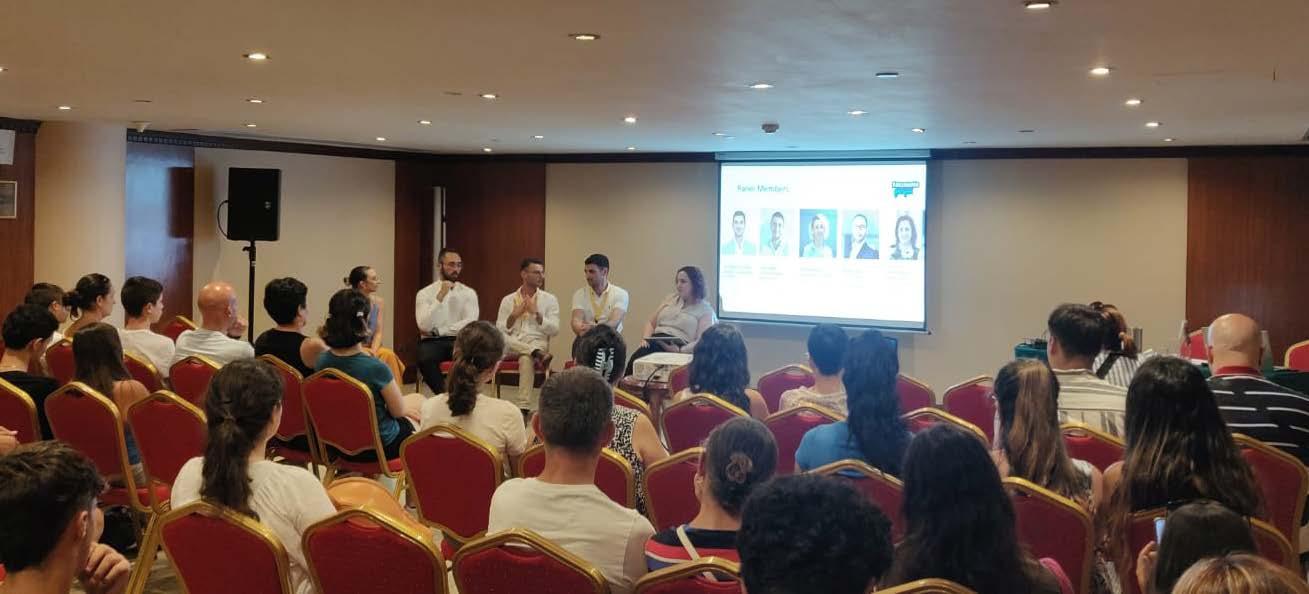


To culminate the 2nd edition of the #AccountsForYou campaign, the Institute has launched a series of videos, through a collaboration with 89.7 Bay and accountant and local singer Cheryl Balzan, asking young people questions which are stereotypical to the accountancy profession. This series is being made available on the Institute’s and 89.7 Bay’s social media platforms.

Not all of us may know that accounting is one of the earliest professions in the history of humanity, with the oldest known written documents being trade records from Mesopotamia. Accounting is the lifeblood of a business. It is a way to communicate the financial health of a business or an organisation to stakeholders, and is additionally a method of assessing the assets, liabilities and cash flow – factors which contribute to the future of an entity, affecting all current and future investors.
The role of accounting in modern business has evolved dramatically. It is no longer about just communicating financial results and in fact goes well beyond compiling a monthly set of management accounts. The main focus of the modern accountant is to add value to employers, clients and stakeholders. Value added is a state of mind of wanting to go well beyond the norm. It is about wanting to present relevant information that can help the company formulate the strategy for its business going forward, management acknowledging a real value in the information being provided and whetting the Board’s appetite to want more from you as a Financial Controller or Chief Financial Officer while being an integral part of the executive team.
After graduating, my idea of being a ‘good’ accountant was finalising accurate management accounts in a timely manner. This worked well in the early days of my career with my employers appreciating the effort and giving due recognition. As the years pass you realise that there is much more to the accountancy profession than that. You need to start putting yourself in the shoes of the investors in the business, and think ‘If I owned the business, what would I do to improve it?’ This motivates you and challenges you to go over and above the bare minimum.
Adding value is not about redesigning presentations and updating them with modern templates and features. It is about searching for new relevant information not necessarily coming out automatically from a business system, such as new Key Performance Indicators and trends, whilst eliminating that information which may

have been relevant in the past but has today became less important.
Depending on the nature of the business, accountants can find numerous ways of adding value through, for example,:
• Meeting deadlines (always a favourite). This guarantees stability and assures statutory compliance of the organisation.
• Determining an optimal business structure. As businesses grow, the company structure as envisaged in the original Memorandum and Articles of Association may become outdated and accountants can play a key role in proposing structure changes to accommodate the new reality.
• Taking the initiative to look at ways to improve financial performance. Things like improving debt collection, negotiating better credit terms, considering refinancing options, improved pricing and better cost control should all come natural to an accountant in a leading role.
• Performance Evaluation. Go beyond historical reporting. Develop performance evaluations that help guide your Board towards better decision making. This can be done through, for example, recommending improved budget allocations, drilling down into departmental or even individual employee or product performance, or look at and compare with competitor results or market data.
• Integrated reporting. Do away with multiple spreadsheets and work towards a fully integrated business system. The more integrated thinking is entrenched into a business’s daily activities, the better the flow of information into analysis, management reporting, and decision-making. The modern accountant requires essential knowledge and
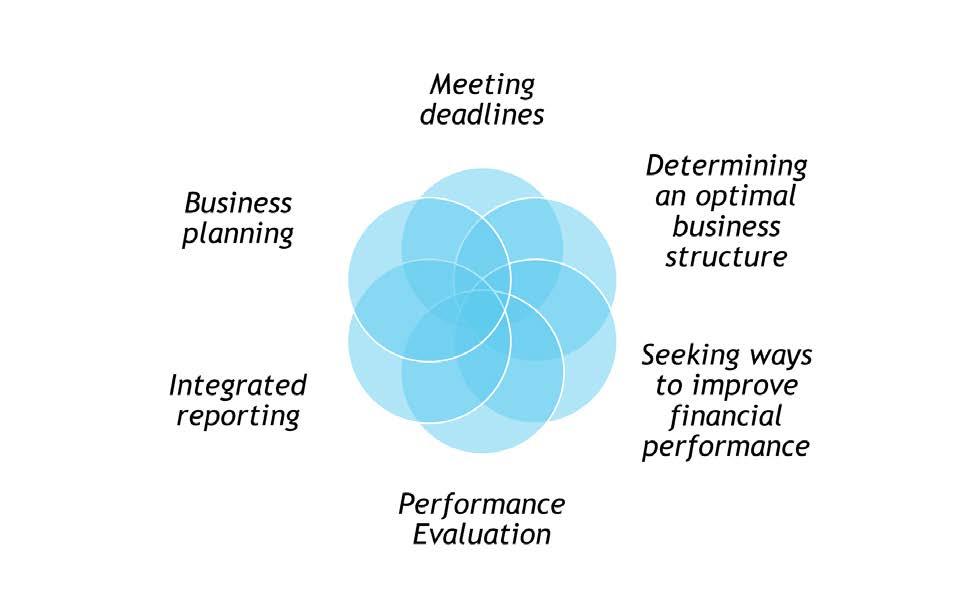
insights into the business to facilitate the transition from accounting for balance sheets to accounting for business wellbeing.
• Business planning. Keeping up-to-date business projections based on historical results, current market conditions and the company’s operational plans is key. This helps you plan the future with a higher degree of comfort and accuracy. Business plans are not an annual diary event. Keep them live and update at each material development (such as, for example, product launches, delays in execution, changes in financing scenarios and key organisational changes.)
In this day and age, it is clear that an accountants’ role is to provide much more value than simple numbercrunching. An accountant helps ensure businesses have the knowledge, resources, and agility to remain successful over the long term.
An accountant who is commercially minded will be a huge asset to any company with aspirations for growth. His or her advice can be crucial to business owners to help improve cash flow, reliably forecast financial performance, and provide a clear picture of the levers that need to be pulled to increase profitability, all of which leads to increased shareholder value.
In an increasingly digitised business environment, Professional Accountants in Business (PAIBs) play a pivotal role in maximising business value. Not only do they serve in traditional financial management roles, but their contributions towards digital transformation significantly boost business performance and longevity.

PAIBs, with their unique blend of financial expertise and ethical integrity, are critical to implementing and managing digital tools. They can streamline financial operations and deliver strategic value by ensuring that data-driven decision-making is at the core of business processes. The relevance of PAIBs in digital transformation can be viewed in two main aspects: information management and risk management.
Information management is an area where PAIBs’ contribution to the digital transformation process becomes apparent. They provide crucial insights into financial performance, investment opportunities, and business strategies. With advanced technologies like Artificial Intelligence (AI) and Machine Learning (ML), they analyse complex datasets, enabling more precise
forecasting and strategic planning. By implementing digital tools, PAIBs can automate routine tasks, hence reduce errors and improve efficiency. The transformation of data into actionable insights results in better business decisions, leading to enhanced profitability and competitive advantage.
In terms of risk management, PAIBs are instrumental in identifying, assessing, and mitigating risks associated with digital transformation. They provide a clear understanding of financial implications and contribute towards ensuring regulatory compliance amidst the changing digital landscape. As cyber threats become more prevalent, PAIBs’ knowledge in cybersecurity and data privacy regulations adds value by protecting the business’s digital assets and reputation.
Moreover, PAIBs serve as change agents within organisations, fostering a culture of innovation. They facilitate the adoption of digital strategies, ensuring these align with business goals and ethical standards. Their understanding of technology’s impact on business models, combined with their financial acumen, helps businesses pivot effectively in the face of digital disruption.
Finally, the strategic role of PAIBs is evolving as technology advances. They are becoming integral in fostering sustainable business practices, such as integrating Environmental, Social, and Governance (ESG) metrics into reporting frameworks. Digital tools aid this transition, making PAIBs indispensable in driving sustainable digital transformation.
In conclusion, the value added by PAIBs to a business during digital transformation is immense. From leveraging data for strategic decisions, mitigating risks and driving innovation, to leading sustainability efforts, PAIBs play a significant role. As businesses continue to navigate the digital landscape, the multifaceted competencies of PAIBs will remain instrumental in shaping sustainable, profitable, and resilient businesses.
Accountancy provides an excellent pathway to a rewarding career in business. Professional accountants in business fulfill a variety of finance and commercialfacing roles, and their professional designation provides a foundation for enabling successful and resilient organisations in the public and private sectors.
The International Federation of Accountants (IFAC) Professional Accountants in Business Advisory Group, which I chair, has been highlighting the myriad of opportunities and different roles available to accountants, including in key leadership positions. Our global agenda aligns with the MIA’s efforts to promote accountancy among students at all levels, and in the corporate world, to expand understanding of the value of professional accountancy to individuals and organisations.
In particular, digital and sustainability transformations provide significant opportunities and new responsibilities for professional accountants to be more strategic and relevant to their organisations than ever before.

Championing organisational sustainability agendas is now in the job description of many CFO, controller, internal audit, and treasury roles. Finance and accounting professionals are critical to linking net zero and sustainability transition mechanisms and the cost of financing. In collaboration with sustainability experts and operational colleagues, finance and accounting professionals can use their professional skillset to, amongst others,:
• establish effective governance and processes;
• understand and quantify sustainability risks and opportunities;
• evaluate the cost and benefits of finance and options to improve ESG and business performance;
• ensure that relevant data is available for decision making and that sustainability priorities are
incorporated into business processes through budgeting and forecasting, capital allocation, performance assessments, and scorecards; and
• conduct materiality and reporting assessments and implement an internal control environment to build trust in data and reporting processes.
Finance and accounting professionals can also enable digitalisation leading to finance and business transformation. Digital technologies and tools evolve the type of work done and value added, and they provide opportunities to optimise processes and provide critical insights for decision making. The professional accountant skillset is now needed to address new risks and complexities in these tech-driven environments, with a focus on eliminating low-value tasks and prioritising internal and external customer needs.
The business world demands accountants who seize the opportunities in the digital and sustainability transformations of economies and organisations, and who can steer their organisations through increasing complexity and difficult trade-offs. IFAC and its member organisations, including the Malta Institute of Accountants (MIA), are focused on helping economies meet fast-growing demand for accountants who perform in multidisciplinary teams across all levels to leverage digital and sustainability opportunities that build competitive advantage and organisational resilience.
Visit IFAC’s website for further insights on Professional Accountants as Business Leaders and Value Partners
Authors
Luke Coppini is a certified public accountant with extensive experience in financial positions in industry. He has been heading a number of property development projects since 2008 and is currently CEO for the Property Division at Debono Group. He is also a member of the Accountancy Board.
Cenk Kahraman graduated in engineering and has been working in the financial sector with a focus on Banking for more than 20 years. During this time, he held managerial positions in Corporate Marketing, Treasury and C-Level roles in multinational banks.

Since 2016 he has been the CEO of Finance Incorporated Ltd, formerly known as Paymix Ltd, where he also sits as a Board Member. Cenk is committed to ESG and sustainable finance, and he personally represents Finance Incorporated with the Sustainable Markets Initiative

Sanjay Rughani, Chair of the IFAC Professional Accountants in Business (PAIB) Advisory Group, is the CEO of Standard Chartered Bank (SCB) in Uganda and was previously CEO for SCB in Tanzania. With over two decades of experience at SCB, he has occupied various key positions within the bank. Sanjay is a Chartered Accountant through NBAA Tanzania, an ACCA member, and holds a MBA in Finance, Management post-graduation in HRD, and a Bachelor of Commerce. He is also a Fellow of the Institute of Information Management Africa (Nigeria).
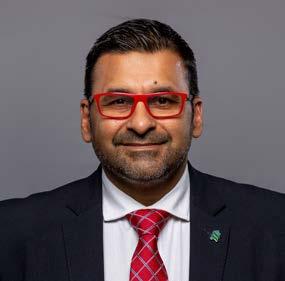
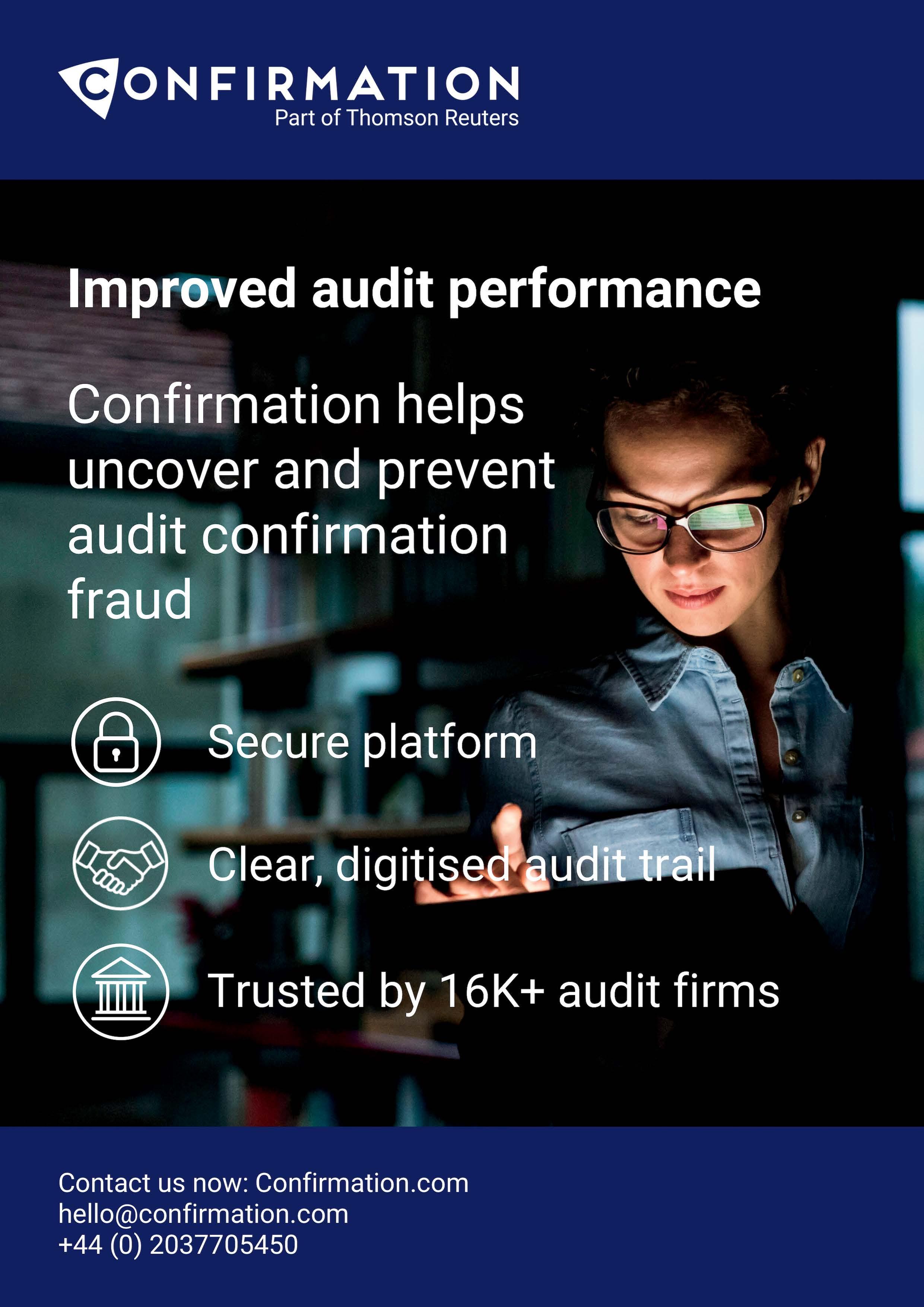
We are at the beginning of what many commentators have referred to as a decisive decade with significant choices to make about how we navigate a path forward. This applies for several areas being climate change, environment, foreign policy and, the theme of this article, financial services. Across the developed economies and in particular in the European Union and the United States, politicians in collaboration with the private sector are implementing modern versions of industrial strategies where the state is assuming a more active role.
Malta achieved so much over the past decades in the financial services industry. The main four pillars which led to the successes registered are still very relevant today. We should rethink. We should reform. However, such rethinking and reform should take place by keeping in mind the main pillars.
1. The operating environment pillar focuses on ensuring that the policy, culture and legislative conditions underpinning international financial services will support growth.
2. The technology and innovation pillar focuses on providing a collaborative approach to addressing emerging challenges and opportunities in technological developments.
3. The talent pillar seeks to ensure that we continue to have skilled people to meet the demands of the international financial services sector, including meeting new and ever-changing skills.
4. The communications and promotion pillar focuses on ensuring that Malta’s international financial offering is communicated to all those who are or may be attracted to invest in Malta.
Three horizontal priorities apply across the four pillars: regionalisation, sustainable finance, and diversity.
For financial services and fintech, as a regulated industry, the role of the state has been a constant,
with the need to balance the promise that innovation heralds with the need to protect people’s money and secure financial stability. That being said, the ask of government is increasing both from active stakeholders in fintech and from the public in terms of the services they require from fintech and digital finance services. Innovation is playing a critical role in the next stage of the financial services industry’s growth globally and is moving progressively towards becoming a core competence for firms that want to be able to thrive in a digital-first 21st century.
There are many factors that have contributed to Malta’s path to where we are today, three of which are considered to be the most influential and continue to be of upmost importance today.
First: building and maintaining the trust factor. The Government and the private sector need each other to build a successful digital society. That will only work if there is mutual trust. Transparency is a must. Maintaining this trust requires constant devotion, research, development, as well as asking and answering serious questions.
Could the questions you ask today help build a better tomorrow?

The better the question. The better the answer. The better the world works.


Second: regulators must be willing and ready to understand novel business models. Legal requirements need to be understood by the general population and be effective but simple enough for government authorities and private sector companies to enact and follow. Our experience shows that this will only work if there is constantly smooth cooperation. For developing a successful strategy, we need to work together with different stakeholders from the public and private sector, leveraging our strong IT-sector and friendly business environment to overcome possible obstacles that prevent Maltese businesses to be scalable and successful here and abroad.
The third lesson from our experiences: never settle with what you have. Digital society will never be static. New risks will emerge on a daily basis. Developments are super quick in the tech world and the fintech sector is moving rapidly. If we want to keep up the pace, we need to be on the alert and take decisions constantly. There will always be plenty of room for improvements.
While the most exciting developments will come from the private sector, governments will play a crucial role in updating regulations and making tokenised claims and assets usable in the legacy world. Technical innovation such as Artificial Intelligence (AI) is also a new opportunity and provides solutions in applying regulations, especially in the fight against money laundering and terrorism financing.
In general, we must ensure that our business environment is transparent and works for everyone by establishing technology-neutral regulations that equally benefit the entrepreneurs, customers, and the sector as a whole.
The environment for international financial services is increasingly competitive. Industry participants continually face pressures to optimise their businesses by delivering new and innovative products and by exploiting processes and locational efficiencies. They must deliver these while continuing to serve the needs of their customers and ensuring the overall continued stability of the global financial system.
The industry is more technology intensive than it has ever been and the use of AI and automation present both opportunities and challenges for Malta. We must continue to position ourselves as a location that is open to providing an innovative, supportive, and dynamic environment for companies looking to leverage our expertise and long history in technology and financial services.
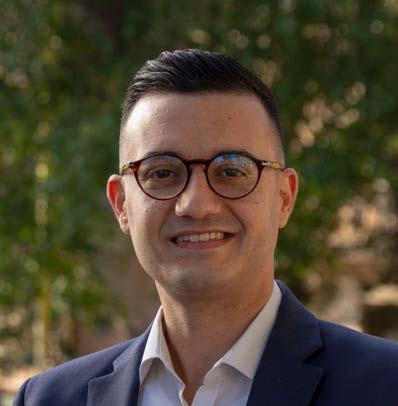
The financial services industry is a tool to create better and quality jobs, raise standards, attract investments, create careers, create income for governments and to better our standard of living. Like other countries, we are also continuously being assailed by intense international competitive pressures and the economic and financial turmoil resulting from increasing commodity prices and the turbulence in the financial markets. These uncertain times should not be looked at just as a risk or difficulty but, together, we should find ways how to turn all of this into an opportunity.
The task that Malta faces is to bridge the remaining income gap with the more advanced members of the Euro Area. The success of this endeavour will importantly depend on how effectively the public and private sectors work together, both in assimilating the lessons learnt during the past years and in implementing appropriate policies. Within the context of an open economy with limited resources like Malta’s, where growth must be predominantly export-led, the focus of policy must be on increasing the country’s international competitiveness.
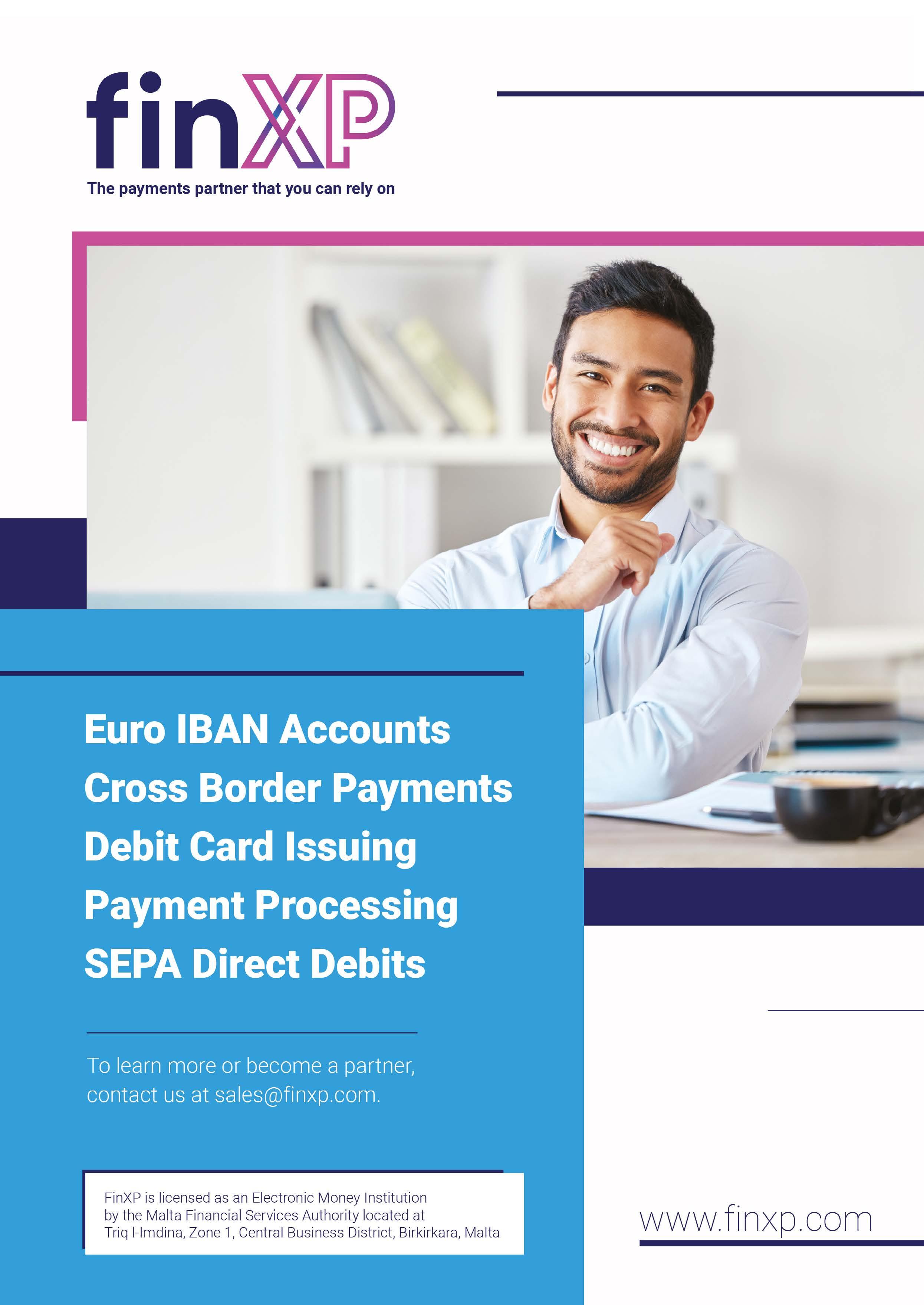
In the dynamic and rapidly evolving world of business, the role of Professional Accountants in Business (PAIBs) has become increasingly vital. As technology continues to advance, the integration of artificial intelligence (AI) and other innovative technologies has brought about a paradigm shift in the way accountants carry out their duties. This article explores the significant impact of AI and technology on the role of PAIBs and highlights their unique value for businesses in today’s digital age.
The advent of AI and technology has transformed the traditional accounting landscape. Routine tasks that once consumed significant time and resources can now be automated, through AIpowered tools which can efficiently handle data entry, reconciliation, and basic analysis. This in turn is now allowing PAIBs to allocate their time to more complex and analytical tasks that require professional judgement and strategic decisionmaking, and thus focusing on higher-value activities.
AI and technology have revolutionised the speed and accuracy of financial processes. Advanced algorithms can quickly process vast amounts of data, identify patterns, and generate insightful reports. This empowers PAIBs to provide real-time financial insights, perform predictive analysis, and make informed recommendations to drive business growth and mitigate risks. By leveraging AI and technology, accountants can enhance the efficiency of financial operations and improve the accuracy of financial reporting, ultimately leading to better decisionmaking.
Compliance with regulatory requirements and managing risks are critical for businesses across all industries. AI and technology offer robust solutions
to streamline these processes. Automated systems can monitor transactions, detect anomalies, and flag potential fraudulent activities, bolstering internal controls and reducing the risk of financial misconduct. Additionally, AI-powered algorithms can analyse vast volumes of data to identify compliance gaps, ensuring adherence to industry standards and minimising the possibility of non-compliance.
PAIBs are no longer confined to being the stereotypical ’number-crunchers‘; they have evolved into strategic advisors who contribute significantly to organisational growth. AI and technology empower accountants to do this, by extracting valuable insights from financial data, identifying trends, and developing predictive models that support strategic decision-making, among others. By analysing data from multiple sources and leveraging AI-driven analytics, PAIBs can provide businesses with comprehensive financial forecasts, scenario analyses, and risk assessments, enabling proactive and informed decision-making.
While the integration of AI and technology presents exciting opportunities for PAIBs, like all developments it also brings forth new challenges. Accountants must be ready to adapt to new
technologies, acquiring relevant skills in the process, and stay updated with the latest developments in the field. Continuous professional development becomes even more essential to ensure that PAIBs remain at the forefront of technological advancements and can fully utilise the potential of AI.


The role of Professional Accountants in Business has witnessed a profound transformation with the rise of AI and technology. By embracing these innovations, PAIBs can enhance efficiency, accuracy, compliance, and risk management while providing strategic
insights and valuable business advisory services. As businesses strive to thrive in the digital era, PAIBs who harness the power of AI and technology will play a crucial role in driving sustainable growth, managing risks, and unlocking new opportunities. Embracing AI and technology is not only a necessity but also an opportunity for PAIBs to elevate the accountancy profession and make a significant impact in the ever-evolving business landscape. By leveraging AI and technology, PAIBs can navigate the complexities of the digital age, shape the future of accounting, and contribute to the success of businesses worldwide.
With a strong focus on driving success in the ever-changing digital landscape, Denise combines leadership skills with a deep understanding of AI technologies, working closely with organisations’ key stakeholders to drive successful projects for businesses to enhance operations, improve decision-making processes, and gain a competitive edge in the market.
Author Denise De Gaetano, an experienced professional in the field of Artificial Intelligence (AI) and its business applications, has a proven track record of delivering outstanding results through innovative approaches, bringing a wealth of knowledge and expertise to the table.Mr Borg, your accountancy career has spanned over a few decades, allowing you to witness the development of the profession first hand. Firstly, could you take us through the highlights of your career?
My professional journey commenced as a clerk at the Central Bank of Malta, where I spent four years in the Accounts and Internal Audit Divisions. Simultaneously, I proceeded with my studies in accountancy by enrolling in the Association of Chartered Certified Accountants (ACCA). My pursuit of knowledge involved studying through correspondence and attending evening classes, and occasionally I participated in overseas courses in London.
During those years, Malta faced a scarcity of accountants. Back then, I was recruited as an accountant at Telemalta Corporation. My dedication paid off when I obtained my ACCA qualification in 1983 and subsequently became a member of the Malta Institute of Accountants (MIA). My journey with Telemalta Corporation witnessed the company’s transformation into Maltacom, listing on the Malta and London stock exchanges, and eventually undergoing privatisation. Throughout these significant transformations, I was at the forefront, leading the Finance Team and navigating through dynamic and exciting changes.
My tenure in the telecommunications sector at Maltacom granted me invaluable experiences, as I collaborated with esteemed finance professionals, including stockbrokers and analysts. Beyond that, I was offered opportunities to serve as a senior expert in Finance and Economics for the United Nations (UN). Working on prestigious projects, such as introducing mobile cellular operations in Poland, privatising Ukretelecom in Ukraine, and establishing the Caribbean Telecommunications Development Fund, broadened my horizons and added depth to my expertise.
After dedicating twenty-seven years to the telecommunications field, I embraced a new challenge – establishing my own accounting and auditing practice. My experience in business and strategy development, governance, and internal controls proved to be invaluable assets during this venture. I served a diverse array of small to mediumsized clients, and my background in accountancy allowed me to offer them valuable insights and guidance.
In 2014, I embarked on a new chapter in my career by assuming the role of Chief Finance and Administration Officer in the Ministry of Health. Leading a team of Financial Controllers, I confronted the mammoth task of managing a staggering budget and financing entities of a significant size within the health sector. Over the subsequent nine years, the Health Ministry’s budget doubled in size, reaching 1 billion Euro, making it a huge entity in terms of size and complexity in the public sector and even when compared to the private sector.
How has the profession transformed itself during this time?

My decades-long career in accounting has been a journey of diverse experiences and transformative changes, witnessing its dynamic nature.
Finance Departments have transitioned from manual to digital systems, with technological advancements revolutionising the landscape. The ever-evolving landscape within which the accountant operates, such as developments in accounting and auditing standards, and the emergence of new topics such as sustainability, is redefining the profession. Furthermore, the expansion of IT, financial services, and other relatively new sectors, such as gaming, have given rise to essentially new areas of specialisation, including IT audits, forensic accounting, risk management, and the formulation of anti-money laundering strategies.
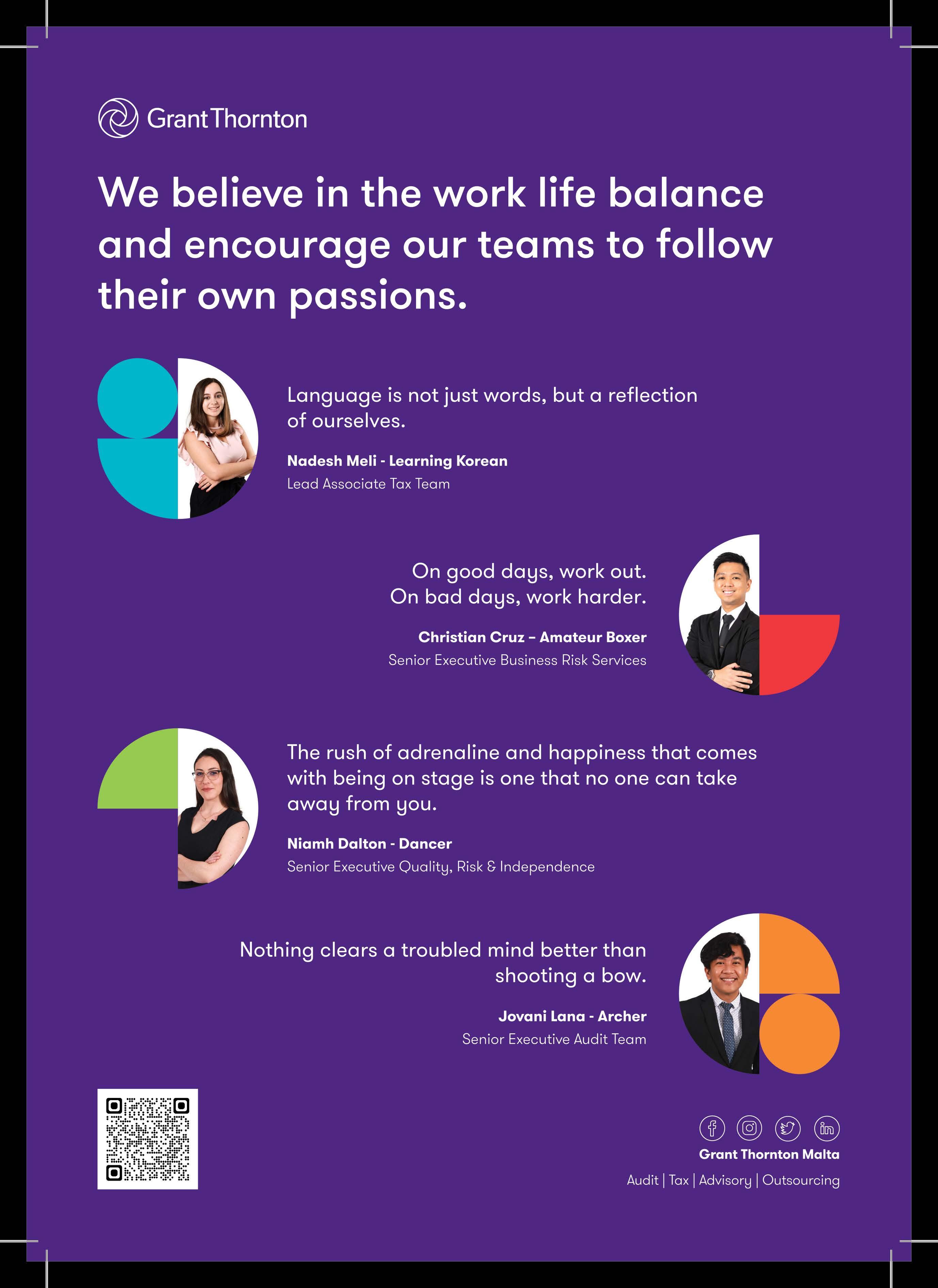
What is the Accountancy Board’s role in maintaining public trust and confidence in the accounting profession?
At the core of the Accountancy Board’s (the Board’s) responsibilities lies the protection of the public interest, achieved through orderly professional development, discipline, and preparedness to meet economic demands. While focusing on crucial areas like Financial Reporting, Taxation, Information Technology Audit and Assurance Standards, and Artificial Intelligence (AI), accountants must not overlook the significance of Ethics, Governance, and Independence during assignments. The Board serves as a beacon in ensuring that professional accountants adhere to best practices.
Why is engagement with stakeholders important?
Actively engaging with stakeholders remains an integral part of the Board’s function. Constant exchanges and meetings with entities like the Financial Intelligence Analysis Unit (FIAU), the Malta Financial Services Authority (MFSA), and the European Commission (EC) are essential for developing legislation and directives that shape the profession. The partnership with the MIA further enriches the Board’s expertise through technical and professional development in areas such as reporting standards and guidelines, ethics, legal developments, and Continuous Professional Education (CPE).
Participating in the Committee of European Auditing Oversight Bodies strengthens the profession’s consistency throughout the EU. This engagement is crucial in keeping accountants updated with the latest EU legal standards, technical requirements, best practices, and regulatory aspects.
One of the roles of the Board is to carry out monitoring visits to statutory auditors and audit firms. What can you tell us about this?
The Board’s Quality Assurance Unit plays a pivotal role in reviewing and, if necessary, sanctioning audit
firms and sole practitioners providing statutory audit services. Among others, this unit ensures that such audit firms and sole practitioners maintain high professional standards in their work.

It is a common misconception that an understanding of accountancy is only required to be fostered by those who work directly in accounting and auditing. How does having an accountancy background help in pursuing a career, even in areas beyond those directly related to accountancy?
A solid foundation in accountancy equips professionals with a comprehensive understanding of business dynamics, including marketing, business development, customer satisfaction, and strategy. This coupled with qualities such as empathy, interpersonal relationships, and motivation become paramount for leaders managing organisations comprising experts from various fields. Leading finance and accountancy functions within an entity fosters the development of vital leadership skills, indispensable for excelling in senior roles across all organisations.
What is your advice to young and upcoming accountancy professionals?
A genuine passion for the field and a commitment to continuous learning are paramount. Staying updated with the latest academic and professional material is vital for growth. Embracing new technologies, like AI, offers accountants the opportunity to focus on value-added activities, such as advisory and business planning and development.
In conclusion, from my experience, upholding public trust, engaging with stakeholders, and embracing emerging technologies are among the crucial elements that pave the way for a fulfilling and successful career in accounting.
Author
Edgar Borg currently holds the position of Chief Finance and Administration Officer at the Ministry of Health, which I have been serving since February 2014. Before this, I held various roles, including Finance Director and Group Finance Director at Maltacom plc (now Go), and I also worked as an independent consultant, auditor, and director. Throughout my career, I have had significant international exposure, leading projects and serving as a Senior expert in various assignments in different countries for the International Telecommunication Union. Such international assignments included preparing companies for privatisation and the introduction of mobile cellular telephony.
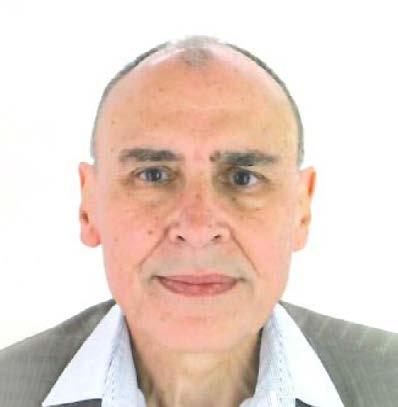

The shift towards the use of digital tools and processes started to pave the way for the effective functioning, modernisation and administrative streamlining of an efficient business landscape, both on a local and cross-border spectrum. The increasing dependence on digital tools was brought to the fore rather recently by the COVID-19 pandemic, where it became evident that certain inhibitions impact the smooth running of commercial operations and that digital tools are instrumental in ensuring business continuity.
In 2019, the European Parliament and Council implemented Directive (EU) 2019/1151, commonly referred to as the “Digitalisation Directive” with the primary objective of amending Directive (EU) 2017/1132. This focal legislative measure marked an initial step towards addressing the integration of digital tools and processes within company law. It particularly focuses on specific procedural rules relating to the online formation of companies, the online registration of a branch of a company in a European Union Member State that is already established in another Member State, and the online filing of documents for companies.
It is noteworthy to point out that the scope of the Digitalisation Directive is constrained to procedural aspects and therefore does not prejudice the requirements at national law. Malta transposed the legal framework and principles emanating from the Digitalisation Directive by virtue of Act LX of 2021, resulting in a number of introductions and significant amendments to the legislative framework that regulates companies: the Companies Act, Chapter 386 of the Laws of Malta.
This article provides an insightful analysis of the key changes instigated by the Digitalisation Directive within the European
context and delves into the proposed strategy for embracing digital tools and electronic processes in the future.
Member States are obliged to ensure that the online formation of companies as well as the registration of a branch may be carried out fully electronically, including the payment of any applicable fees, without the necessity for the applicant to appear before any authority mandated under national law to manage the formation of companies (in Malta being the Malta Business Registry).
The Digitalisation Directive dictates that specified rules shall be established by each Member State to govern such online registrations and goes a step further to outline the minimum guidelines. These include procedures to ensure that applicants have the necessary legal capacity and authority to
represent the company or branch to be registered, procedures to verify the legality of the objective of the company and the means to verify the identity of the applicant amongst others.
Furthermore, it is highlighted that the formation of a company is required to be completed within five working days where a company is formed exclusively by natural persons, and within ten working days in all other instances (including the registration of a branch). The time period starts running from the date of completion of all the formalities required for online formation, including receipt of all documentation and payment of registration fees. Interestingly, it also provides that where it is not possible for the relevant authority to complete the procedure within the indicated timeframes, the applicant must be notified of the reasons for delay.
Member States shall ensure that documents and information relating to companies can be filed electronically, naturally within the time limit prescribed by the law of the Member State where the company is registered.
The Digitalisation Directive grants Member States the discretion to implement effective and adequate controls in relation to the identity and legal capacity of persons filing the documents and safeguards for the reliability and trustworthiness of documents submitted. In fact, the preambles of the Digitalisation Directive further provide that Member States should be allowed to adopt certain measures, including requiring the physical presence of the applicant, where deemed justifiable by reasons of public interest in preventing identity misuse or in ensuring that the rules of legal capacity and authorisation are complied with. Nevertheless, such measures must be applied solely where required and deemed absolutely necessary in the circumstances.
Commonly described as being the first step towards digitalisation in the sphere of company law, the Digitalisation Directive had the objective of facilitating certain processes and rendering them time and costeffective for businesses and professionals.

Despite the significant advancement, it is widely recognised that the world is in a perpetual state of evolution and transformation, necessitating the importance of staying current and relevant. Acknowledging this dynamic nature, the 2023 European Commission work programme unveiled a proposal to extend and further enhance the scope of the Digitalisation Directive, to adapt it to the latest technical, economic and societal changes. One of the key objectives of the proposal is that of increasing transparency and availability of information about companies at European Union level, therefore making it more straightforward to locate and access accurate, reliable and up to date information.
The proposal also aims to reduce the administrative burden, by implementing measures such as a European Union company certificate to contain a basic set of information about companies which will be available free of charge in all Member States.
Another proposed initiative is adopting less formalities where practically permissible, such as abolishing the need for an apostille or certified translation for company documents.
The underlying objective is that of updating and further strengthening the Digitalisation Directive in order to keep abreast with technological developments and advancements as well as the challenges that these bring along.
It is essential to be mindful of the fact that the proposal is in the preliminary stages, and naturally subject to discussions and evolving developments. The contents of the article are intended for general informational purposes and shall not constitute legal advice.
In today’s increasingly demanding business scenario, the ability to establish and sustain one’s competitiveness and differentiated offer in the market is of critical importance. Mazars’ success story is rooted in the relevance of our unique integrated model, our international development strategy and our balanced multi-disciplinary strategy. It is the result of a drive to achieve the right balance between regulated services (such as audit) – and tax, consulting and advisory services, while serving a broad range of clients, from large international and listed companies, to privately owned businesses, public and not-for-profit organisations, as well as private individuals.
Our success also reflects the quality and relevance of our services. Quality has been and will always remain our top priority while, we continue to invest in innovation and talent to deliver excellence and a seamless client experience. Mazars’ ability to continuously grow its audit position among large and listed companies offers choice and a different
Mazars in Malta celebrates 25th Anniversary


As part of its 25th Anniversary celebrations, Mazars in Malta recently hosted an event which saw the participation of clients, stakeholders, and its employees, together with Mazars Group CEO and Chairman Hervé Helias and Mazars’ Country Monitor for Malta, Pinot Florence and H.E. Ambassador von der Mühll. The event was held on the Grand Harbour Terrace of the Mediterranean Conference Centre, offering splendid views of the Grand Harbour in Valletta.


perspective in a highly concentrated market. As evidenced also in Malta, this has helped establish Mazars as a trusted professional services firm in other critical areas, such as financial advisory, digital transformation and performance management.
Going forward, we will pursue Mazars’ bid to consolidate its position as one of the leading audit, tax and advisory firms both globally and on the local market, committed to maintaining the highest quality standards, and thus serving the best interests of all its stakeholders. We are committed to further innovating our services and capabilities to serve our clients in a wide range of areas. As auditors and advisors in tax, corporate finance, risk, compliance and business performance management, we have a pivotal role to play in the setting of strong foundations for the economy in which we operate, and the society which we serve. We will continue to enhance our capabilities and services to support our clients in their quest to grow responsibly, complying with increasing regulations, successfully transforming their operations, strengthening internal control systems, and securing long-term performance.

As auditors and advisors in tax, corporate finance, risk, compliance and business performance management, we have a pivotal role to play in the setting of strong foundations for the economy in which we operate, and the society which we serve. We do this by supporting organisations in their quest to grow responsibly, complying with increasing regulations, successfully transforming their operations, strengthening internal control systems, and securing long-term performance.
In pursuing our mission, we have always been guided by the firm’s founding principles: to act responsibly, in the public interest and for future generations. We take this commitment seriously, walking the talk, innovating and transforming ourselves, continuously learning and developing along the way. And as we celebrate 25 years of Mazars in Malta, our focus remains the same as always: that of growing with purpose together.
www.mazars.com.mt

Leverage cutting-edge Tech Strategies and embrace Digital Transformation to stay ahead in the market and make data-driven decisions with our business intelligence solutions.

Streamline IT operations with our Systems & IT Audits, Cyber Security Consultancy and specialised Tech Project Management.
Ensure peace of mind with ISO certifications, expert data protection compliance and other specialised services.
Contact us today to understand how we can help you digitally transform your business and foster growth.
zampadebattista.com


By acquiring knowledge and skills in the accountancy profession, individuals gain a holistic financial perspective which enables them to contribute to the well-being of organisations operating in diverse markets and facilitating their own professional growth in a globalised world.
This element of an accountant’s professional life emerges quite evidently in our conversation with Karl Bartolo, Deputy Chief Executive Officer (CEO) at MedservRegis. Whether it’s tax, crossborder business, the implementation of accounting standards or the international expansion of a local business, an accountancy professional is likely to be exposed to a multitude of clients, businesses, cultures and realities. “This broadens the mind of the professional and provides him or her with a global outset to life, enriching the person and opening many new frontiers”, Karl explains.
The gas and oil logistics company within which Karl works has been operating since 1972, but throughout his 15 years at the firm it has embarked on a strong growth strategy which focused on exploring and opening new markets, particularly in Africa and the Middle East. Karl’s role necessitated a lot of travelling, enabling him to become well-versed with particular cultures in these regions, something which he finds fascinating and motivates him in his job. This leads us to one of his first recommendations to young and upcoming accountancy professionals. “Seek what you love - your career should be a source of motivation and fulfilment. If these are missing, then it is not your calling”.
A big plus of an accountancy career is that the studies and experiences expose the person to a skill set, together with a platform for more significant roles later on, as a career progresses. “Accountants develop an eye for detail, a commercial approach, legal and compliance know-how”, Bartolo explains, adding that these skills are highly sought-after in the business world. Consequently, it is only a natural progression that after their experience at senior levels, such as a financial controller, several accountancy professionals make it to the executive team.
We chart back Karl’s career history, starting with a big four audit firm which provided him with the first exposure to large international clients, particularly in his eight-month London stint. Although Maltese firms today deal with significant major clients from all over the world, Karl believes that working abroad for at least six months to a year should be a fundamental rite of passage for budding accountants.
This also opens opportunities on our shore given the approach that Malta as a jurisdiction has taken in recent decades, particularly in adopting IFRS standards under the Companies Act, which in Karl’s words was a game changer. “I think the possibility of moving within an organisation is one of the most appealing benefits of the accountancy profession”. Added to that, the profession will aid you in keeping up to date with the latest developments, be it climate change, through sustainability-related regulations, or Artificial Intelligence, among other current topical matters. These skill-sets will therefore open many doors.

Delving into Karl’s current professional life we cannot fail to notice how enamoured he is of the African continent. “It is true that certain countries in this beautiful continent might still experience poverty and inequality, but it is a land of opportunity”. He feels that war in Ukraine has also highlighted the risks of having high energy and food dependency on traditional sources of supply while, indeed, the solution could be in nearby Africa. He points out how the African population, which is a very young one, is expected to double by the end of the century,
thereby creating a myriad of opportunities in terms of needs in many sectors, from health to education and Information Technology.
Karl is also a member of the Malta Institute of Accountants’ Professional Accountants In Business (PAIB) Group. He takes us through the key topics which dominate discussions therein, including supporting the Institute in its discussions with Authorities on establishing a further recognition of what the role of accountant implies and support to the ongoing #AccountsForYou campaign by providing personal experiences to prospective students.
The Committee is also hard at work on a very interesting conference coming up this Autumn. Karl explained that the discussions being planned for this conference are going to address matters and concerns that are of particular relevance for PAIBs and for doing business in Malta.
As our interview approaches its end, we seek one final message for all professionals and aspiring ones. There is no hesitancy as Karl highlights the importance of approaching the career with a continuous willingness to learn, and to keep an open mind to growth. “Do not think for one moment that you know all you need to know. You never stop learning. Listen to your mentors, to colleagues: keep an open mind, listen to anyone who may provide words of advice”. “Your attitude is your altitude” is indeed his very pertinent, parting message that should really make us think and reflect.
PwC Malta has announced the firm’s new appointments of Ms Pamela Mamo (centre) and Mr Mark Tabone (left) as Directors within PwC’s Academy and Advisory lines of service respectively, and Mr Etienne Bonnici (right) as Chief Technology Officer (CTO).

Three words to describe yourself.
Hate describing myself but if I had to it would be practical, loyal and determined.
How would you describe working at the MIA?
Manic at times yet rewarding.
Ideal travel plans?

Tend to prefer short breaks exploring different locations. However, I also relish a solo trip generally to the UK, later in the year. Sometimes this happens to coincide with Black Friday. ��
If you could live in another historical period, would you? If so, which one?
Ah, if only I had a time machine! Must admit I’m a bit of history buff so choosing a specific period is tough. It would have to be between the era of the Knights in Malta or World War II, with the latter being my first choice. I guess we do tend to romanticise history a tad too much though.
If you were reincarnated as an animal, what would you choose? An eagle, to conquer my fear of heights!
If you had a magic button on your desk to bring you whatever you wanted, what would it summon?
I’m old enough to know magic doesn’t exist.
What’s your guilty pleasure right now?
Trying to keep to a healthy diet (again) so anything sweet. ��
An interesting book or TV series you read/watched lately?
I rarely watch TV, in fact have only watched two series - The Crown and The Queen’s Gambit. Bookwise has to be ‘My Family and Other Animals’ by Gerald Durrell. First read back in my schooldays and always a favourite re read when I’m in need of a good ‘laugh out loud’.
You can invite any personality for lunch. Who would that person be?
Christina Ratcliffe / Katie Melua.
If you could pick up a new skill in an instant, what would it be?
Creative writing.
Any hobby or pastime you enjoy or would like to...
Iam now in my third year of one semester long Programme in the Liberal Arts and Sciences (PLAS) units at the University of Malta. I enjoy getting an insight on a variety of subjects that range from archaeology to cheesemaking!


